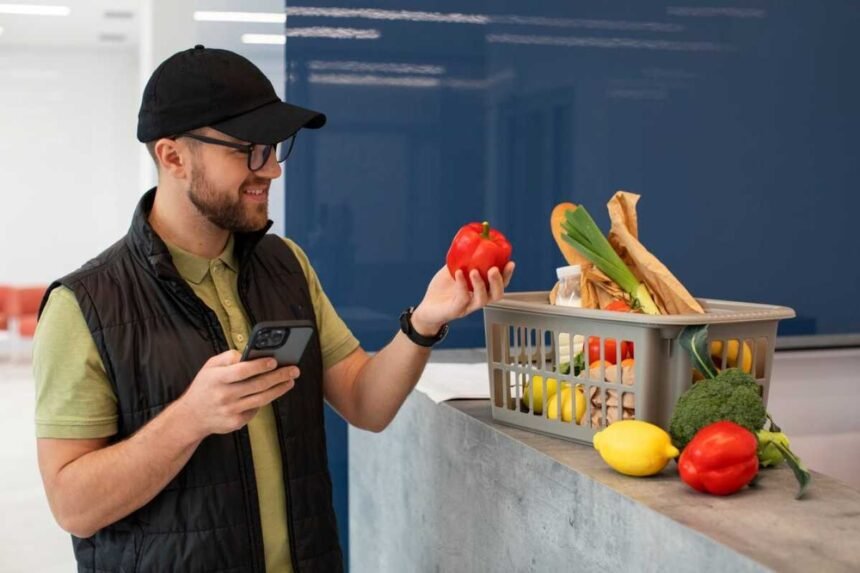Retail grocery chains are being redefined by innovation and advanced data-driven strategies. Leaders enhance loyalty programs to foster customer retention and gather crucial analytics in an industry where traditional practices no longer suffice. These programs have become more than a means of rewarding customers — they provide invaluable insights that guide inventory management, facilitate personalized marketing efforts, and pave the way for streamlined operations. Quickly adjusting to market demands with digital tools gives retailers a competitive edge.
Enhancing the Customer Experience Through Personalization
Modern grocery retailers have realized that more than a one-size-fits-all approach is needed. By leveraging vast data, these stores can create unique and personalized shopping experiences that resonate with individual customers. Using algorithms that analyze transaction data, retailers can suggest personalized deals, tailor email marketing campaigns, and suggest products that align with customers’ preferences. Supermarket loyalty programs are vital in this effort, providing retailers valuable insights into customers’ purchasing behaviors and preferences. These insights enable retailers to offer personalized discounts and rewards through the loyalty program, enhancing customer satisfaction and loyalty. These efforts are not limited to digital interactions; they enhance in-store experiences by strategically placing products and sending personalized offer notifications via mobile apps.
Automated Inventory Management
One of the critical challenges for grocery businesses is managing inventory effectively to meet fluctuating demand while minimizing waste. Traditional inventory management methods often involve manual counting and ordering, leading to errors and inefficiencies. Nevertheless, modern grocery stores use artificial intelligence and machine learning-powered computerized inventory management systems.
These algorithms examine seasonal patterns, past sales data, and outside variables like weather forecasts to forecast demand accurately. By automating replenishment, businesses can ensure optimal stocking levels, reduce stockouts, and minimize excess inventory. This improves efficiency and enhances customer satisfaction by providing always-available products.
Efficient Supply Chain Management
Successful supply chain management is necessary for any food store to succeed. However, traditional supply chain processes can be complex and prone to inefficiencies. Modern grocery businesses are adopting innovative approaches to streamline their supply chains and improve responsiveness.
One such approach is using blockchain technology to create transparent and secure supply chains. Blockchain provides authenticity and traceability by enabling real-time tracking of goods from farm to shelf by recording transactions on a distributed ledger. This enhances food safety and quality and reduces the risk of fraud and counterfeiting.
Additionally, grocery businesses leverage data analytics and predictive modeling to optimize their supply chains. Companies can analyze data from several sources, including sales, inventory, and logistics, to detect bottlenecks, optimize routes, and improve resource allocation. This helps them cut lead times and react to demand fluctuations faster, boosting productivity and lowering expenses.
Moving Forward with E-Commerce Integration
E-commerce has revolutionized the grocery landscape, with more retailers introducing or expanding their online offerings. These digital storefronts offer the luxury of shopping from any location and at any hour, a convenience that today’s consumers increasingly expect. Seamlessly integrated with sophisticated logistic networks, online purchasing options, curbside pickup, and delivery services are geared to meet the demand for instant gratification. Moreover, every digital interaction serves as a data point – feeding algorithms that enhance inventory decision-making and marketing efforts, further cementing the strategic importance of investing in e-commerce for any grocery business seeking long-term vitality.
Consumer Behavior in Changing Times
Firms must thoroughly understand shifting consumer behavior to adapt and prosper in the dynamic market. With the rise of digitalization and shifting societal norms, consumer preferences and expectations are evolving rapidly. Traditional models of consumer behavior analysis must now be supplemented with insights from online interactions, social media engagements, and mobile app usage.
In this era of constant connectivity, consumers are more informed, empowered, and discerning than ever before. Customers want brands they connect with to provide individualized experiences, frictionless cross-channel interactions, and ethical business practices. Companies aware of these shifting dynamics and investing in CRM, data analytics, and market research can better predict and cater to their clients’ changing demands, which builds customer loyalty and propels business expansion in a market that is becoming more and more competitive.
Investing in Employee Training and Growth
In the service-driven grocery industry, knowledgeable and friendly employees can considerably impact customer satisfaction. Retailers who invest in rigorous training, skill development, and career progression opportunities create a robust workforce foundation. Solid training programs help staff effectively manage customer inquiries, operate the latest retail technologies, and execute company protocols precisely. Furthermore, when employees perceive opportunities for personal and professional development, morale spikes, staff retention improves, and an influential company culture of excellence and engagement flourishes.
Adopting Sustainable Practices in Daily Operations
The rise of eco-consciousness among consumers has steered grocery stores toward sustainable operational methods. Implementing sustainability is multifaceted — from embracing renewable energy sources and lean energy solutions for store operations to instituting bulk-buy and packaging-reduction initiatives or sourcing goods locally to reduce carbon footprints. Progressive stores are also tackling the challenge of food waste by donating surplus items to charities or using technology to convert organic waste into renewable energy, thus actively promoting sustainability while capturing the hearts of environment-minded shoppers.
Embracing the Future: AI and Machine Learning Applications
Thanks to innovative research, AI and machine learning are fast becoming crucial to grocery store operations. These technologies apply to various functions, from enhancing customer service with chatbots to optimizing stock levels with predictive analytics. The capabilities of AI extend to personalizing the shopping experience in real-time and offering shoppers intelligent recommendations that make their purchasing decisions easier. As these technologies become more sophisticated, they will be instrumental in shaping the shopping journeys of tomorrow and ensuring that retail grocers maintain a competitive edge.
Also Read: Elevate Your Entertainment: The Ultimate Home Projector Experience



